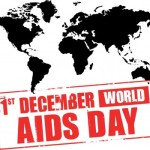Elton John Hospitalized with Serious Respiratory Infection

Sir Elton John- singer, songwriter, piano man- will be spending the next week or so off the stage.
The 65-year-old Grammy and Academy Award winner is currently hospitalized with what is being called a “serious respiratory infection.”
According to CNN, Sir Elton became ill last week while performing at Caesars Palace in Las Vegas, and was admitted to Cedar Sinai Hospital in Los Angeles yesterday for further testing and treatment.
A statement from his publicist said:
Those tests resulted in the attending Cedars-Sinai physician recommending that Elton not perform any concerts for approximately seven days with complete rest and antibiotic treatment to cure his respiratory infection and prevent any damage.
Several concerts at Caesar’s have been cancelled, and will be rescheduled for October.
John also had to cancel shows due to illness in 2009, when he was hospitalized with a serious case of E.coli bacterial infection and influenza.
What do they mean by “Serious Respiratory Infection”?
Respiratory tract infection refers to any of a number of infectious diseases involving the respiratory tract. An infection of this type is usually classified as either an upper respiratory tract infection (URI or URTI) or a lower respiratory tract infection (LRI or LRTI). Lower respiratory infections, such as pneumonia, tend to be far more serious conditions than upper respiratory infections, such as the common cold.
An upper respiratory tract is generally considered to be the airway above the vocal cords. This includes the nose, sinuses, pharynx, and larynx (voice box).
Typical infections of the upper respiratory tract include tonsillitis, pharyngitis, laryngitis, sinusitis, otitis media (ear infection), certain types of influenza, and the common cold. Symptoms of URIs can include cough, sore throat, runny nose, nasal congestion, headache, low grade fever, and sneezing.
Lower respiratory tract infections are generally more serious than upper respiratory infections. LRIs are the leading cause of death among all infectious diseases. The two most common LRIs are bronchitis and pneumonia.
10 Things to Know about Pneumonia
1. Pneumonia is a common illness that affects millions of people each year in the United States.
2. Pneumonia can be caused by bacteria, viruses, and fungi may cause .
3. Ways you can get pneumonia include:
- Bacteria and viruses living in your nose, sinuses, or mouth may spread to your lungs.
- You may breathe some of these germs directly into your lungs.
- You breathe in (inhale) food, liquids, vomit, or fluids from the mouth into your lungs (aspiration pneumonia)
4. Pneumonia caused by bacteria tends to be the most serious kind. In adults, bacteria are the most common cause of pneumonia.
5. The most common pneumonia-causing germ in adults is Streptococcus pneumoniae (pneumococcus).
6. Atypical pneumonia, often called walking pneumonia, is caused by bacteria such as Legionella pneumophila, Mycoplasma pneumoniae, and Chlamydophila pneumoniae.
7. Viruses are a common cause of pneumonia, especially in infants and children.
8. The most common symptoms of pneumonia are:
- Cough (with some pneumonias you may cough up greenish or yellow mucus, or even bloody mucus)
- Fever, which may be mild or high
- Shaking chills
- Shortness of breath (may only occur when you climb stairs)
9. Risk factors (conditions that increase your chances of getting pneumonia) include:
- Cerebral palsy
- Chronic lung disease (COPD, bronchiectasis, cystic fibrosis)
- Cigarette smoking
- Difficulty swallowing (due to stroke, dementia, Parkinson’s disease, or other neurological conditions)
- Immune system problem
- Impaired consciousness (loss of brain function due to dementia, stroke, or other neurologic conditions)
- Living in a nursing facility
- Other serious illnesses, such as heart disease, liver cirrhosis, or diabetes mellitus
- Recent surgery or trauma
- Recent cold, laryngitis, or flu
10. If a bacterial pneumonia is diagnosed, it will be treated with antibiotics. The antibiotics need to be taken for the full length of time prescribed to fully treat the infection and to prevent a re-occurence.
























0 comments